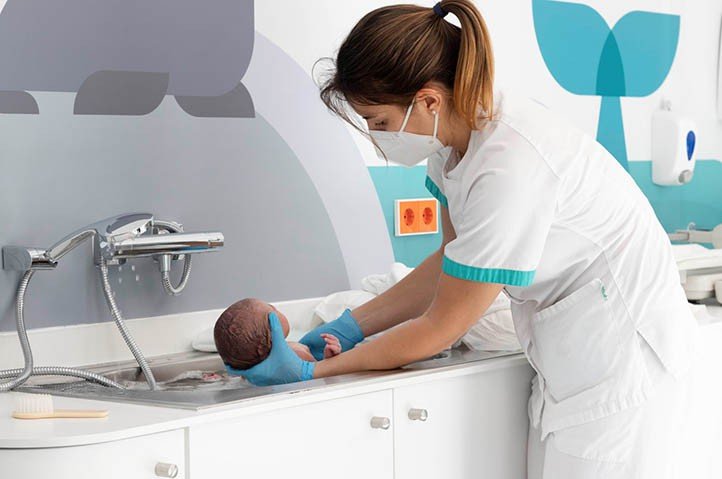Neonatology Department at Quirónsalud Hospital in Marbella Addresses Newborn Jaundice Concerns
Many parents become alarmed when they notice a yellowish hue on the skin of their newborn baby. The Neonatology Department at Quirónsalud Hospital in Marbella assures that this is normal. The yellowish coloration is due to jaundice, caused by the level of bilirubin in the body. Bilirubin is a substance that the body produces when it replaces old red blood cells.
Understanding Physiological Jaundice in Newborns
Adelaida Sánchez, Head of Pediatrics at Quirónsalud Hospital Marbella, explains that this condition is called physiological jaundice and is usually more noticeable when the baby is 2 to 4 days old. It typically does not cause problems and disappears after about 2 weeks. This natural process is due to the newborn’s adaptation to life outside the womb.
The Role of Bilirubin in Newborns
“While the baby is growing in the mother’s womb, the placenta takes care of feeding and eliminating bilirubin from the body. After birth, the baby’s liver must take over this job and needs time to perform this function efficiently,” the expert points out. Hospitals have protocols in place to evaluate signs of jaundice in newborns. If these symptoms are detected, bilirubin levels are immediately measured with a blood test.
Treatment for Newborn Jaundice
Dr. Adelaida Sánchez assures that in most cases, “treatment is not required.” To stabilize bilirubin levels in the blood, the intake of fluids with breast milk or formula is encouraged to increase bowel movements and eliminate bilirubin through the stool. “Sometimes it is necessary to reinforce the treatment with phototherapy by placing the baby under special lights and in rare cases, the administration of fluids intravenously is prescribed,” says the Head of Pediatrics at Quirónsalud Hospital Marbella.
Risk Factors for Severe Newborn Jaundice
Severe newborn jaundice can occur if the baby has any of the following risk factors that require closer monitoring: Prematurity (due to incomplete liver development), genetic inheritance (such as G6PD deficiency), difficulty feeding (dehydration increases bilirubin levels), family history (higher probability if a sibling also had it), blood type (mothers with blood type O or Rh negative blood factor may have babies with higher bilirubin levels), certain medications given to the baby, congenital infections like rubella, syphilis and others, diseases that affect the liver or bile ducts, such as cystic fibrosis or hepatitis, low oxygen levels (hypoxia), and infections (sepsis).
Neonatal Unit at Quirónsalud Hospital Marbella
The mother-child area of Quirónsalud Hospital Marbella has a Neonatal Unit equipped with three state-of-the-art neonatal intermediate care posts. In this unit, parents can visit their little ones without any time restrictions and have the assurance of being in a top-level healthcare environment. Decorated with colorful vinyls based on Kenko characters, the large windows of this unit ensure the entry of natural light for almost twelve hours a day.



